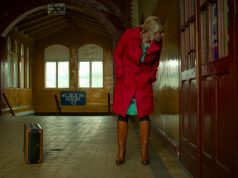
Personal Finance Tips Anyone Can Use
Managing your personal finances is an essential skill to possess. If you develop the knowledge and the discipline to maintain consistent habits, you will be able to avoid relying on others for financial support. You can enjoy independence and become less concerned about having money, especially when you need it most.
If you live near a group of employees that you work with, form a carpool. This will allow you to save money on gas, reducing one of your expenses dramatically over the year. Carpooling is not only fun, but a great way to implement as a money management tool for the year’s expenses.
If you are not sure if it is the right time to buy or to sell, it is best to do nothing at all. When you are risking your money that you worked hard for, it is always better to be safe then to be sorry and lose your money.
To get the most out of your investments, focus on ones with longterm rewards. There’s no such thing as a foolproof get rich strategy, and investments that promise quick benefits also carry high risks. A longterm investment will let you plan for your future, and it gives you peace of mind knowing that you will be rewarded in the long run.
Don’t put off saving for and investing in your retirement. Take advantage of work based plans like a 401k. If your employer is contributing to your 401k make sure to do everything you can to optimize that contribution. Roth 401ks allow you to withdraw from your fund without tax penalty if you qualify.
Keep up with highly important documents like birth and death certificates, previous tax records, insurance policies, and wills by using a scanner to scan them to your computer system. Next, burn the images onto a single CD-R disc that can be easily accessed for your reference. This makes it more convenient to track down critical information in a snap.
Stick to your personal spending habits and expenses as you are writing up your budget. You should avoid generalizing it in any way to prevent breaking the budget. The more specific you are when you set your budget, the easier it is going to be for you to keep track of where you are overspending.
Plan out a budget, and stick to it by using shopping lists that you write before going to the store. This helps avoid unnecessary purchases, as does keeping receipts and bank statements. Balancing your checkbook also helps you see where you are spending your money, so you can make the most of your income.
Make sure you keep track of what you are spending. This will allow you to see exactly what you are spending your money on, and you will be able to see places where you can easily save some money. For example, instead of buying a $5.00 coffee, you can just make coffee and buy a travel mug.
Remember that developing good financial habits is a continual process. It won’t happen overnight, but you can make real improvement, if you achieve consistancy over a span of a few months. It is never too late to start getting your finances in order, so don’t ever doubt that you can turn things around.









